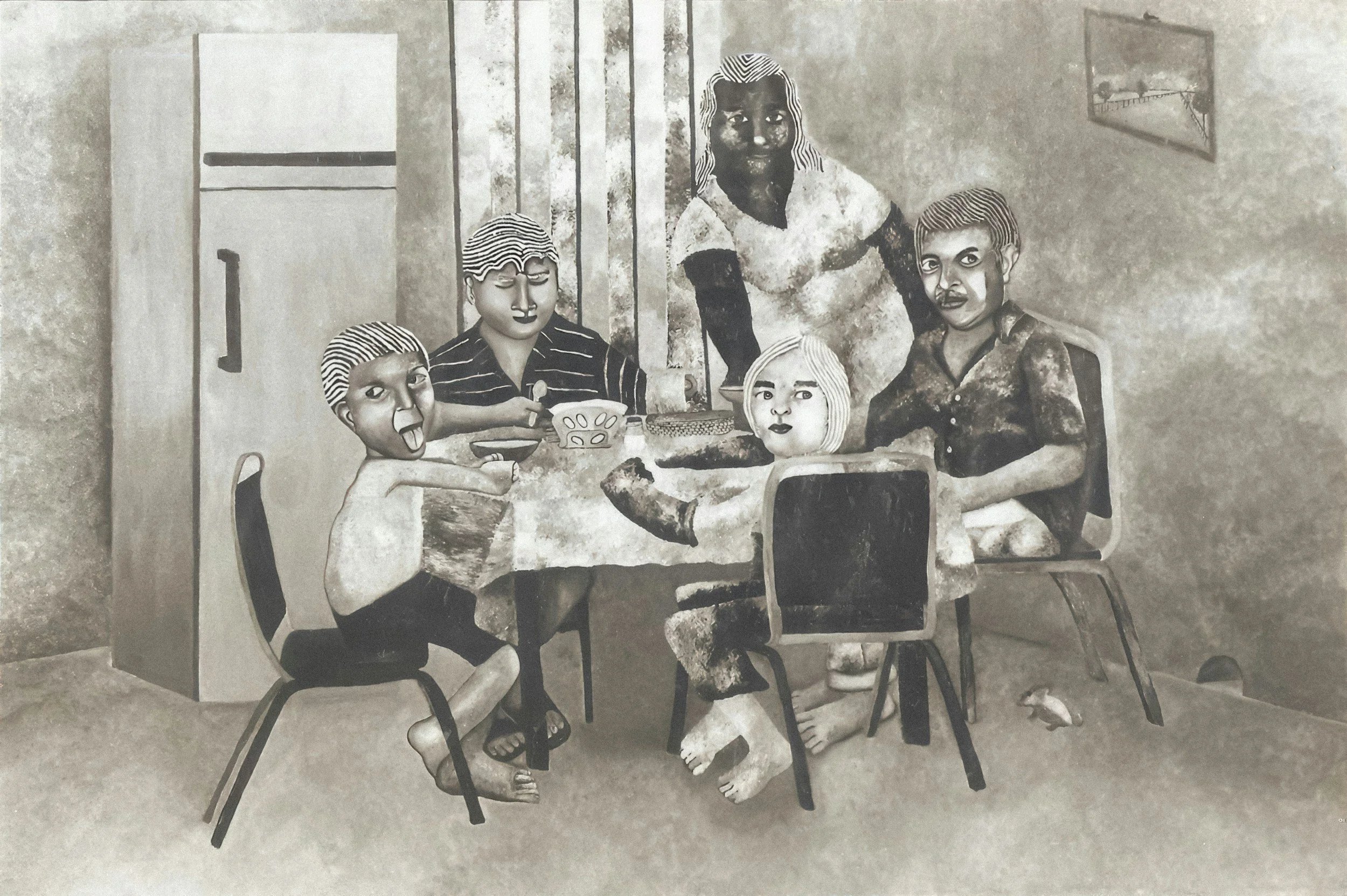
Welcome to my Blog
Thank you for stopping by. This space is where I share research, reflections, and practical tools drawn from my experience as a marriage and family therapist.
Are you a couple looking for clarity? A professional curious about the science of relationships? Or simply someone interested in how love and resilience work? I’m glad you’ve found your way here. I can help with that.
Each post is written with one goal in mind: to help you better understand yourself, your partner, and the hidden dynamics that shape human connection.
Grab a coffee (or a notebook), explore what speaks to you, and take what’s useful back into your life and relationships. And if a post sparks a question, or makes you realize you could use more support, I’d love to hear from you.
Be Well, Stay Kind, and Godspeed.
~Daniel
P.S.
Feel free to explore the categories below to find past blog posts on the topics that matter most to you. If you’re curious about attachment, navigating conflict, or strengthening intimacy, these archives are a great way to dive deeper into the research and insights that I’ve been sharing for years.
- Attachment Issues
- Coronavirus
- Couples Therapy
- Extramarital Affairs
- Family Life and Parenting
- How to Fight Fair
- Inlaws and Extended Families
- Intercultural Relationships
- Marriage and Mental Health
- Married Life & Intimate Relationships
- Neurodiverse Couples
- Separation & Divorce
- Signs of Trouble
- Social Media and Relationships
- What Happy Couples Know
How to Rebuild Connection After Mutual Trust Issues
The fight is over, but the quiet is worse. You’re sitting across from each other, and it feels like there’s a ledger between you — texts, promises broken, things said and unsaid.
Neither of you is innocent, and both of you know it.
That’s the tricky part about mutual betrayal.
When one person breaks trust, the roles are clear: who’s injured, who’s at fault. But when you’ve both done damage? No one gets to stand on high ground. It’s a stalemate.
And yet, not all stalemates mean the game is over. Sometimes they’re just the pause before you figure out how to move again.
A Neuroscience Guide to Banishing Stress, Self-Doubt, and Loneliness
The modern wellness industry promises a fix for everything—powders for your cortisol, books to “hack” your brain, apps to engineer happiness.
Neuroscience offers a humbler message: your brain is not a machine to be optimized, but a living system to be understood.
Treat it less like a gadget and more like a pet: it thrives on consistency, kindness, and patience.
When we ignore this, three forces often take hold—loneliness, chronic stress, and self-doubt. They do more than make us miserable; they change the brain itself.
But neuroscience also shows us how to push back—without buying miracle cures.
The Neuroscience of Rejection: Why It Hurts the Brain
Social rejection neuroscience has revealed something many already suspect: exclusion doesn’t just bruise the ego, it activates the same brain regions as physical pain.
Research shows that being left out triggers cortisol, the body’s stress hormone, while also lowering a sense of belonging and sometimes sparking aggression (Blackhart et al., 2009).
Chronic rejection is even linked to long-term mental health struggles, including depression and anxiety, as well as physical health risks (Slavich et al., 2010).
Evolution offers an explanation.
For early humans, being excluded from the group meant danger. Without social bonds, survival chances plummeted. Today, the brain’s warning system still interprets rejection as a threat to well-being.
Functional MRI studies show that the anterior cingulate cortex—the same region active in physical pain—lights up when people are excluded from something as trivial as a virtual ball-tossing game (Eisenberger et al., 2003).
But newer findings complicate this picture. Follow-up research suggests the anterior cingulate also responds to surprise or expectation violation, not just social pain (Somerville et al., 2006).
In other words, rejection may hurt partly because it confounds predictions: you thought you belonged, but you were wrong.
Love in the Off Hours: Expressing Love Languages When Your Partner Works Night Shifts
The garage door creaks open at six in the morning. Your partner comes home, eyes half-closed, the night shift clinging to their skin. You’re standing by the coffee pot, dressed for daylight. A quick kiss, a muttered “love you,” and the exchange is over.
Not quite intimacy. More like ships passing in the dawn.
Shift work bends time until love feels like a baton pass in a race no one signed up for.
You’re still a couple, but your hours don’t line up. This is where love languages either adapt or wither.
Night work is not just hard on the body — it scrambles relationships. Studies show that irregular hours increase stress, disrupt sleep, and heighten conflict at home (Jansen et al., 2019; Gadeyne et al., 2018).
It’s not that affection disappears. It’s that the normal channels — meals together, evenings side by side, a weekend with both people awake — vanish.
The five “love languages” don’t disappear, but they get somewhat distorted. They might require new forms of expression.
How to Slowly Introduce a New Partner to Your Family Dynamics
There you are. Standing on the porch with your partner, about to ring the bell.
Inside are the people who made you — in every possible sense: your values, your insecurities, your dark sense of humor.
You love them, and you also know they can be… a bit much.
Your partner looks at you like a soldier about to storm the beach. You briefly consider running. Then the door opens.
And just like that, the world’s most important experiment begins: introducing your chosen person to your divinely designated people.
Keeping Romance Alive During Life Transitions Like a Job Change
Your partner gets the job. There’s champagne, high-fives, and maybe a nice dinner out where you both pretend life won’t change much.
Then Monday comes. The alarm goes off earlier. Dinner gets later. They come home with a brain full of acronyms and coworkers’ names you don’t know.
Suddenly you feel like a side character in a sitcom you didn’t audition for.
This is what a job change does. It doesn’t just add new responsibilities; it rewrites the daily script. And romance—once woven into the old routine—can slip through the cracks.
Offline vs. Online Dating: Which Couples Are Happier, According to Science?
Once upon a time, people fell in love at neighborhood barbecues, in classrooms, or while both reaching for the last avocado at the market.
Now? We swipe right, left, and occasionally into oblivion. Online dating has become the dominant way people connect.
But a recent international study suggests something surprising: couples who met offline are, on average, a little happier and more committed.
Not wildly happier. Just a little.
Enough to make researchers raise an eyebrow, but not enough to justify panic-deleting your dating apps.
Coping with Jealousy When Your Partner Reconnects with an Ex
Scene One: The Dinner Party
It happens in an instant. You’re sipping wine at a friend’s house when your partner leans over and says, almost casually, “Oh—my ex is here tonight.”
You nod, trying to appear calm.
But inside, your organs fall through the floor.
Every time your partner laughs, you notice who they’re laughing with. The food tastes like nothing. The room feels like it’s shrinking.
That’s jealousy. It barges in, uninvited, pulling a chair up at the table.
How to Set Emotional Boundaries in a New Relationship
Falling in love is a little like finding a new café that serves the perfect cappuccino. You want to go there every day, sit in the corner booth, and tell the barista your entire life story.
The problem? That barista doesn’t need to know about your middle school heartbreak, and neither does someone you’ve been dating for two weeks.
That’s where emotional boundaries come in—not as walls that keep people out, but as fences with gates.
You decide who comes through, and when.
Done right, boundaries let intimacy grow at a healthy pace instead of collapsing under the weight of overexposure.
How Do You Know If Your Boundaries Are Too Loose?
If rigid boundaries are like fortress walls, loose boundaries are more like broken cellar doors.
Anyone and everyone gets in—solicitors, raccoons, and that friend who always “forgets” their wallet at dinner.
At first, loose boundaries feel generous. You’re the “easygoing” one, the partner who never says no, the friend who’s “always there.”
But eventually you realize: always being there means no one is ever really there for you.
Loose boundaries might protect relationships in the short term—no conflict, no drama—but in the long term, they erode self-respect and intimacy.
Because if you can’t draw a line, no one knows where you actually stand.
How Do You Know If Your Boundaries Are Too Rigid?
We live in a culture that romanticizes independence. “I don’t need anyone,” we declare proudly, as if total self-sufficiency were the gold medal of emotional life.
Instagram tells us to “know your worth,” TikTok therapists remind us to “protect your energy,” and before long we’re mistaking solitude for enlightenment.
But there’s a thin line between healthy boundaries and barbed-wire fences.
Boundaries are supposed to make love sustainable, not impossible.
They’re the fences around a garden—meant to keep out the rabbits, not prevent the flowers from being watered. But if your fences are too high, too thick, or topped with emotional razor wire, you might find yourself safe… and very, very alone.
That’s the paradox of rigid boundaries: they protect you from pain, but they also protect you from joy.
How GLP-1 Drugs Like Ozempic Are Changing Relationships, Sex, and Dating
Ozempic, Wegovy, Mounjaro, Zepbound—these weren’t supposed to be love potions. They were designed for blood sugar, for weight loss, for doctors’ offices.
And yet here we are: they’ve slipped into the dating world, into marriages, and straight into bedrooms.
They don’t just shrink waistlines. They shift confidence, intimacy, and the tiny rituals that hold couples together.
If you think that sounds dramatic, ask the person on a second date who suddenly can’t figure out what to order because they’re no longer hungry.












